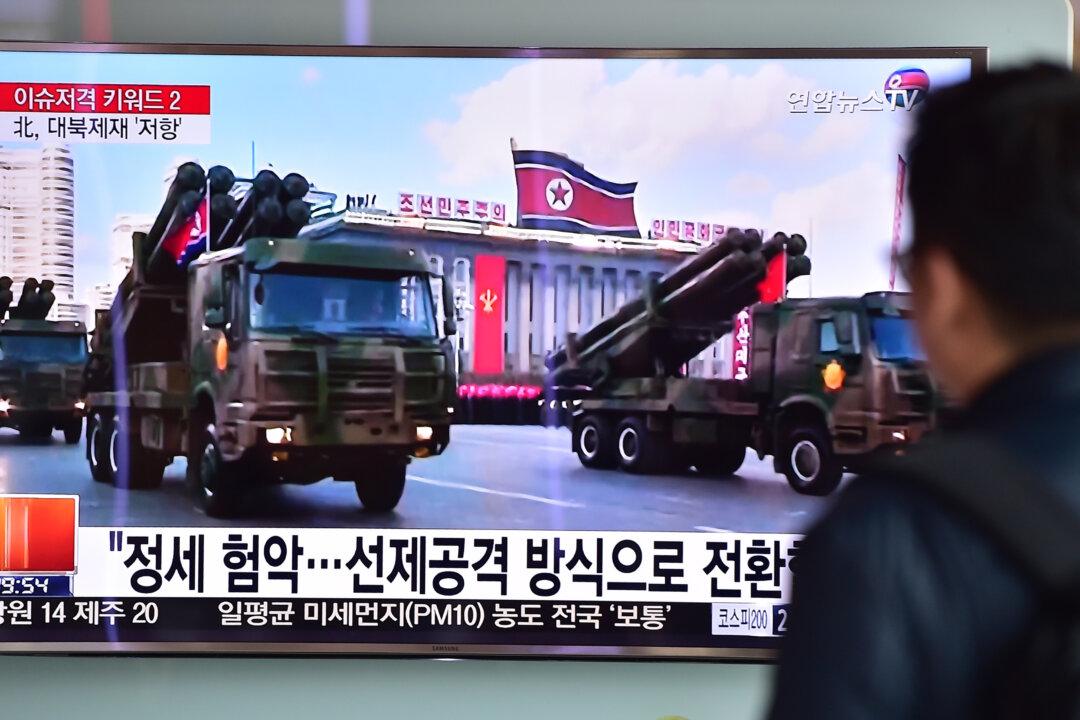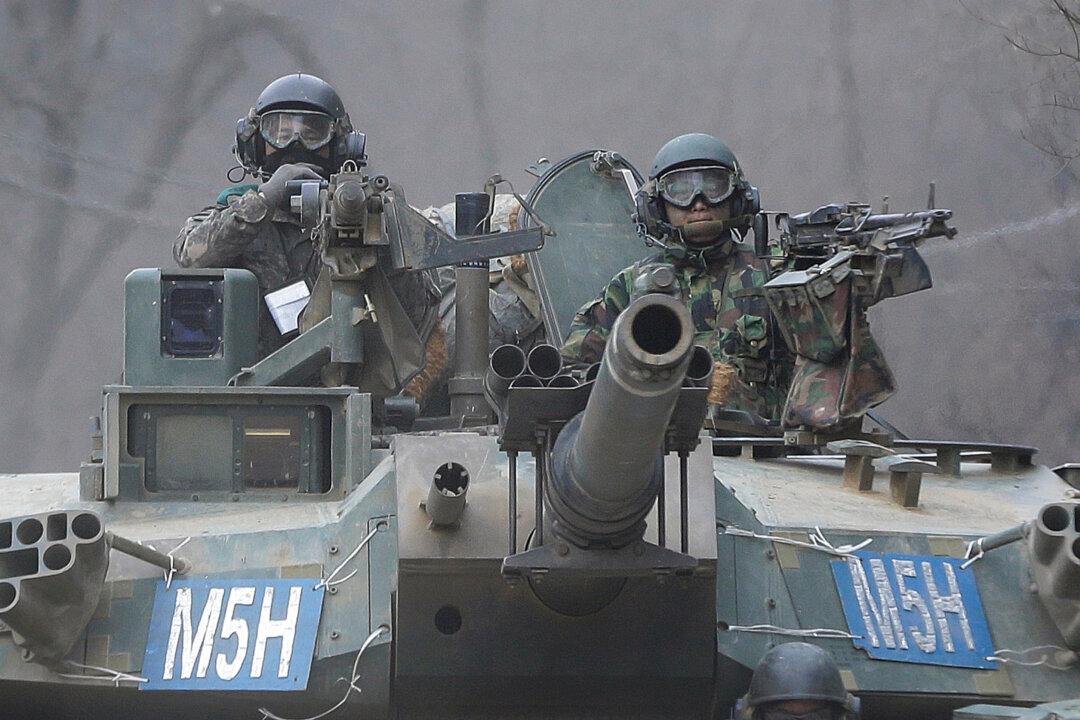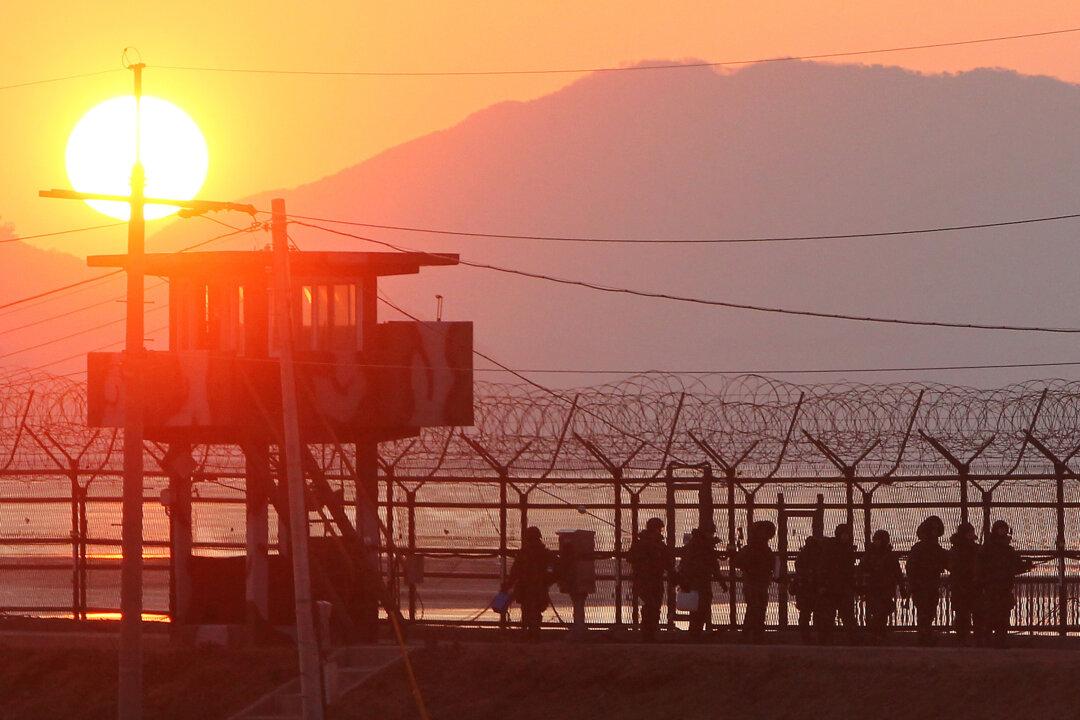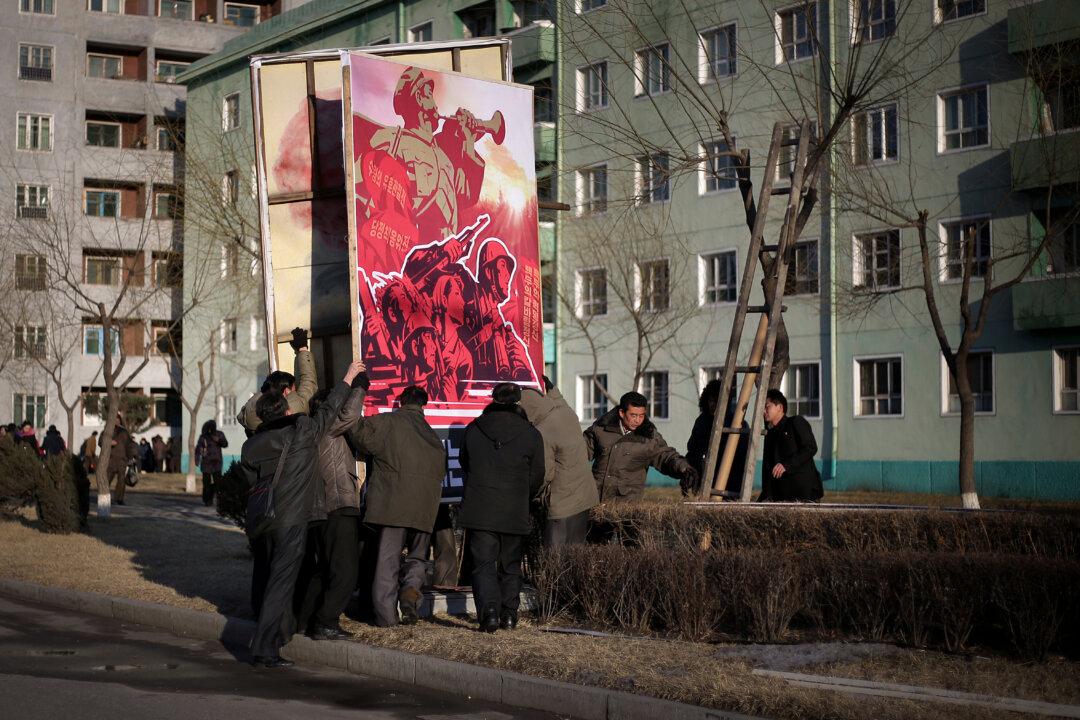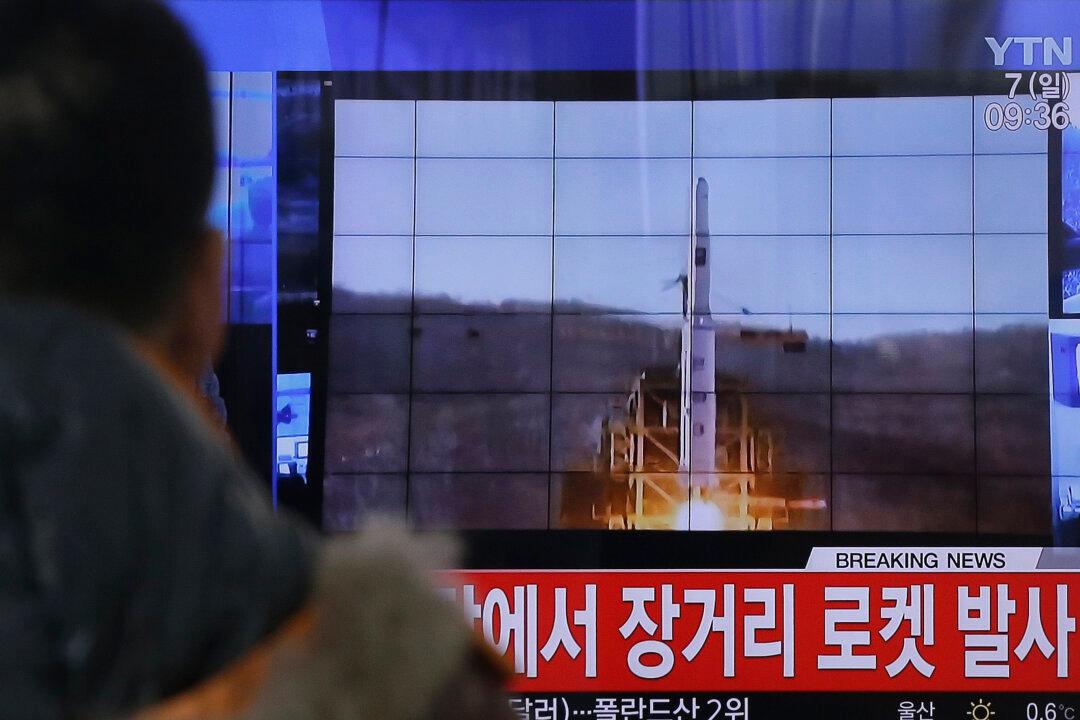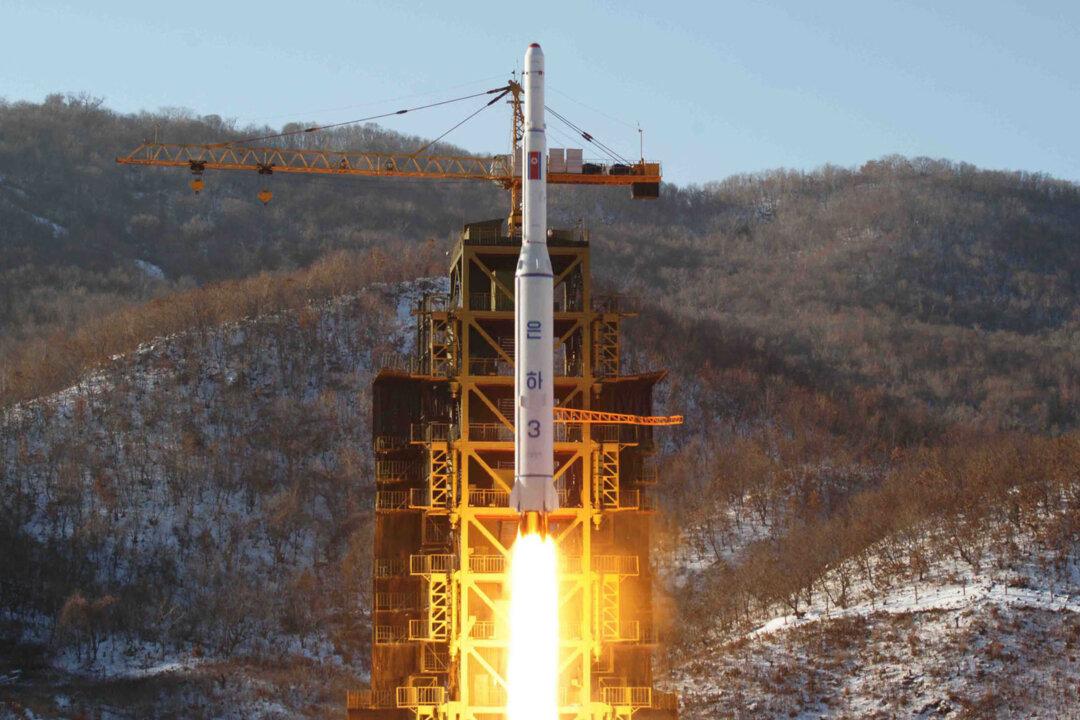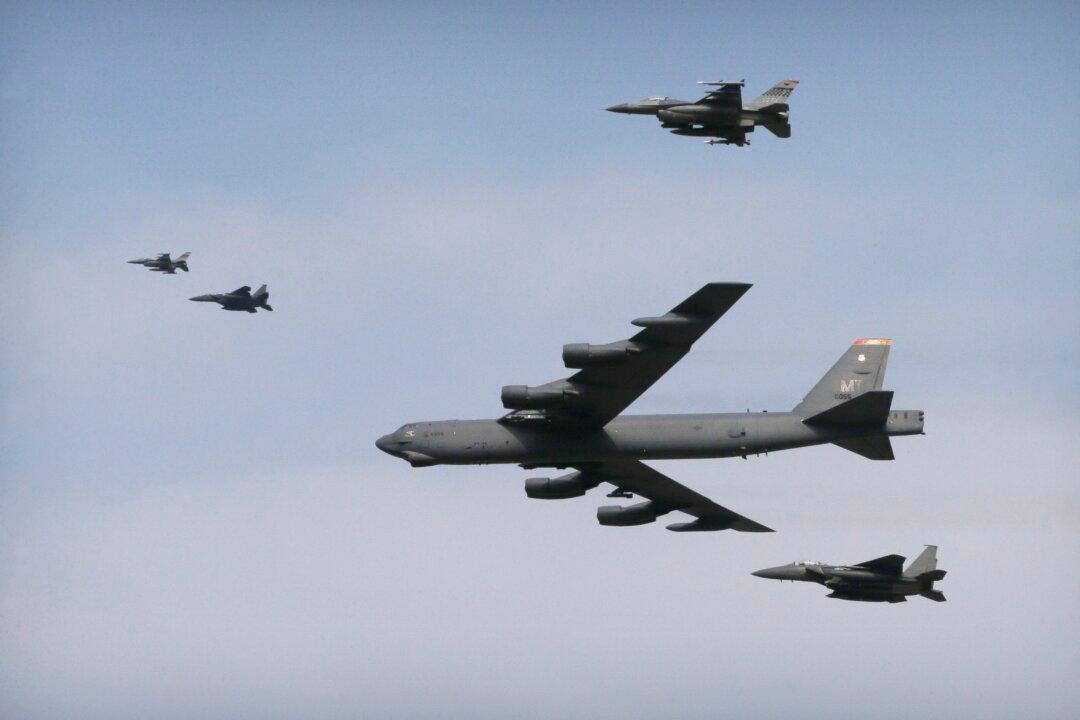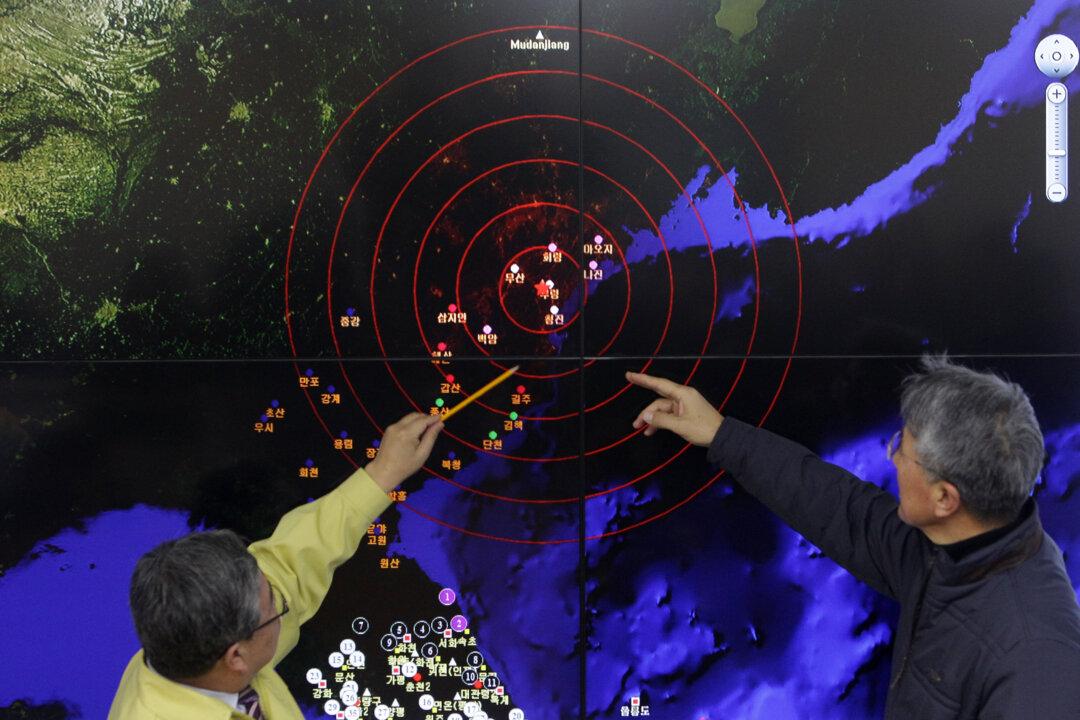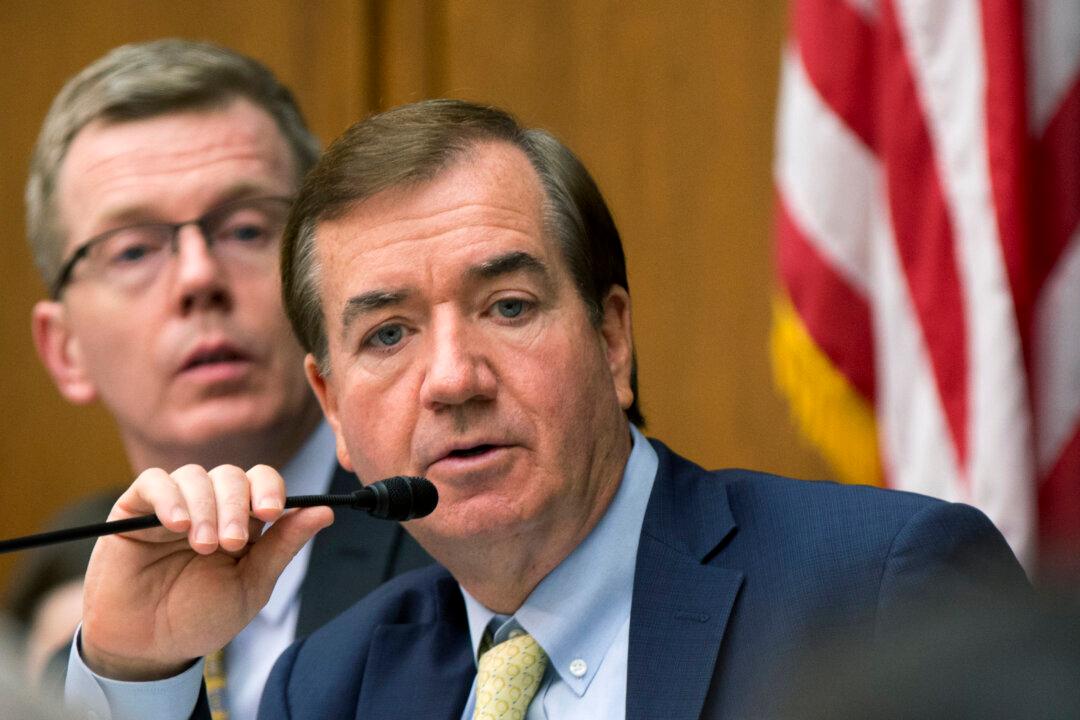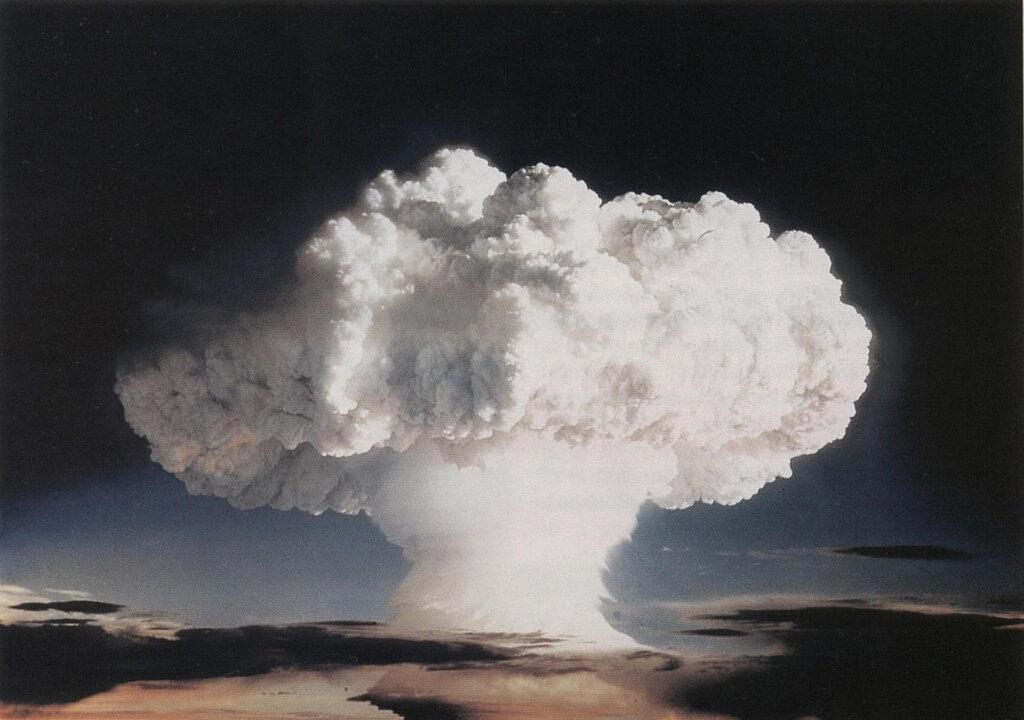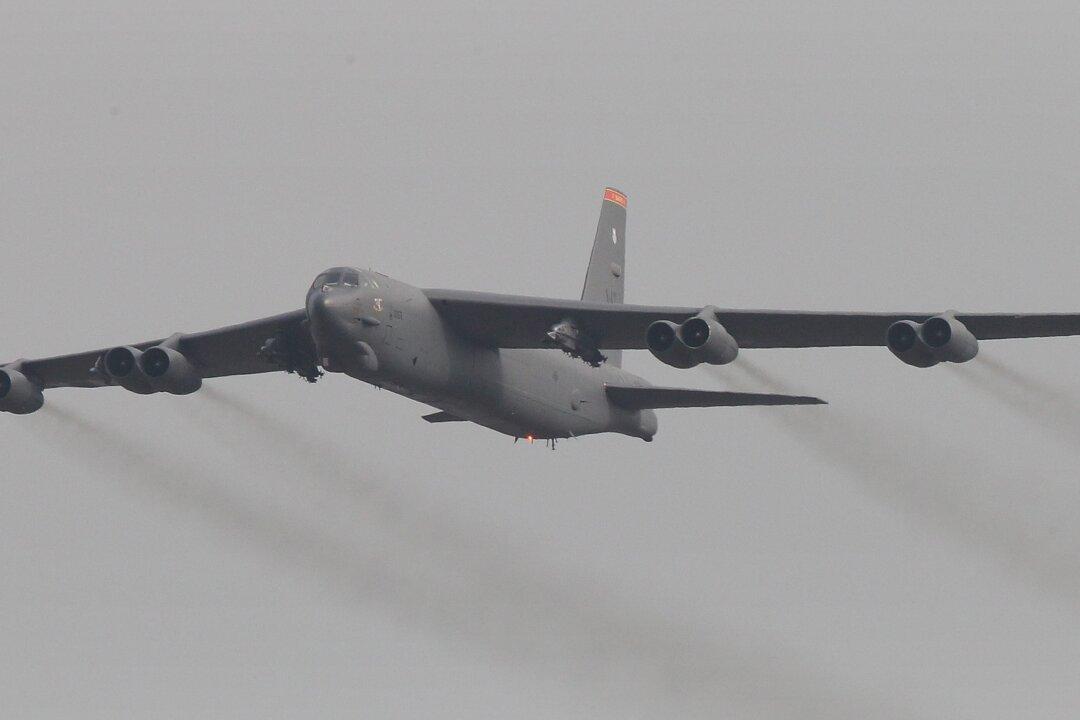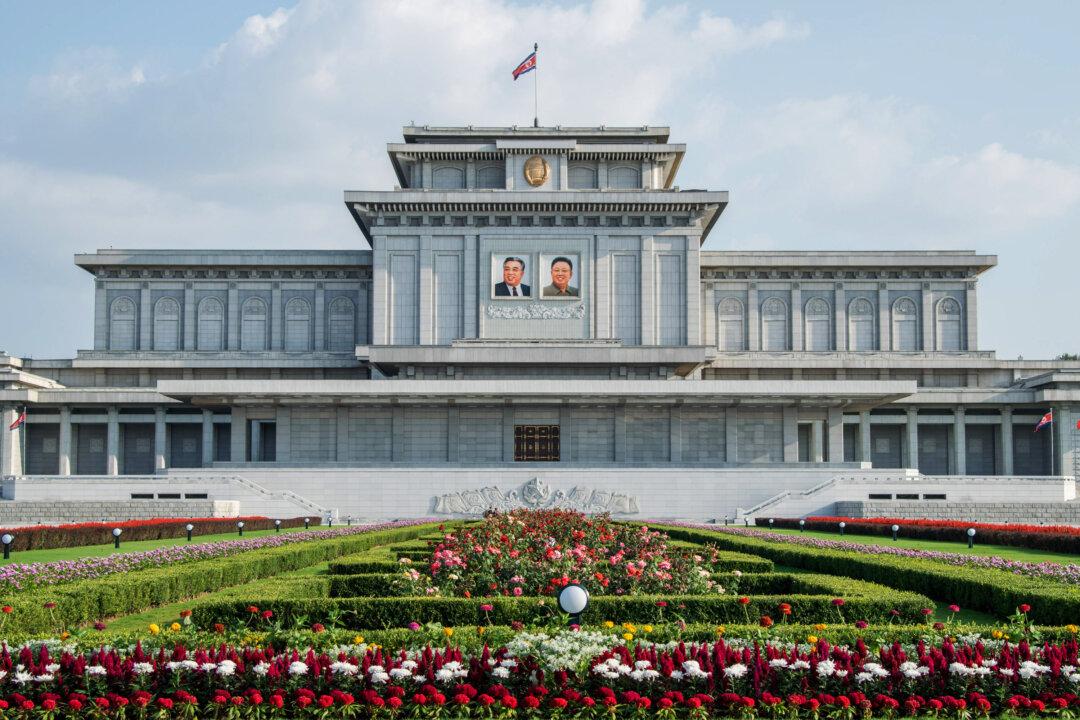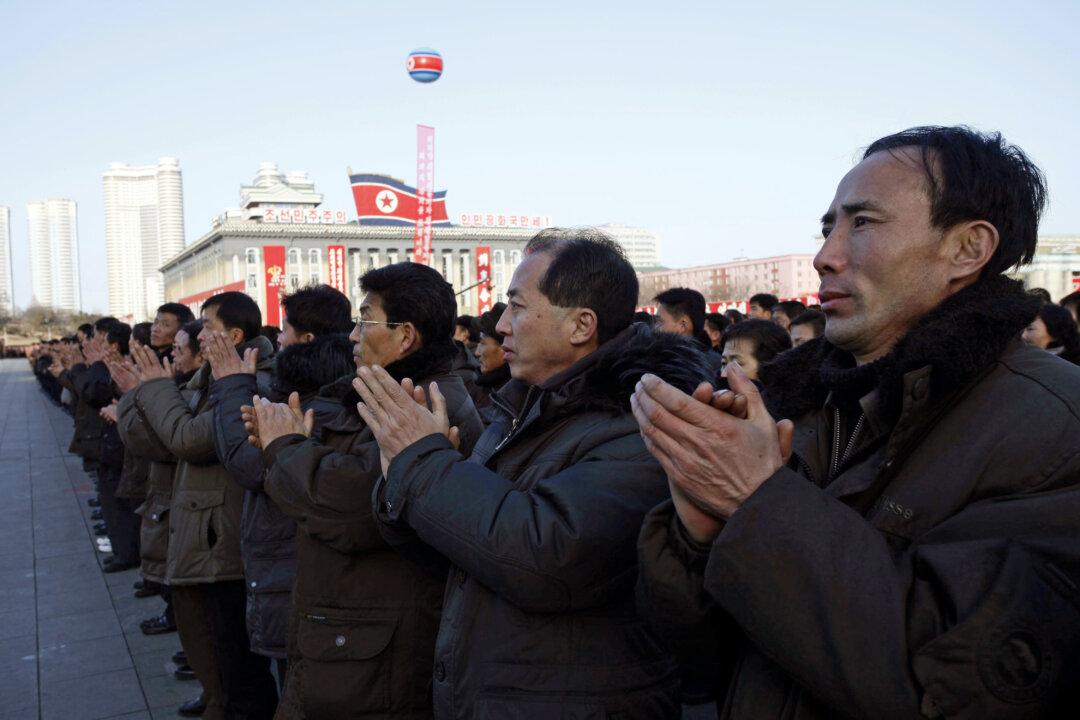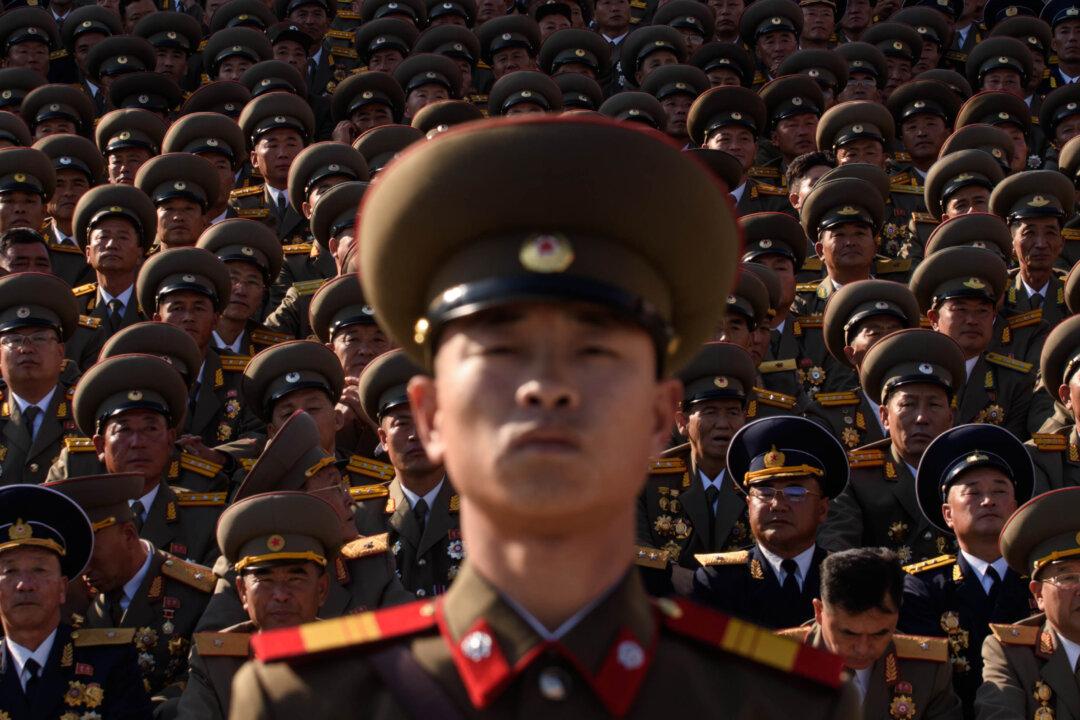Focus
hydrogen bomb
LATEST
North Korea Threatens US, Says It Could ‘Burn Manhattan Down to Ashes’
A short article on what the nuclear scientist said about the U.S. and things N. Korea had done earlier this year.
|
Missing the Big Picture, US Policy on North Korea Could Bring Disaster
So far in 2016, North Korea has tested an atomic weapon and long-range missile. The U.N. Security Council responded with sanctions amid hope that China might contain a belligerent ally. The world expects the U.S. to monitor international developments, and those not posing immediate danger or causing global media alarm are often put to the side with a cursory response. “Yet these important but not necessarily urgent problems contain the seeds of a potentially larger disaster and can grow into a deadly menace that is ultimately impossible to ignore,” explains Paul Bracken, author and Yale professor of political science and management. “One danger of being the sole superpower is getting overwhelmed by immediate, urgent issues while other important issues are repeatedly kicked down the road.“ Bracken describes a game theory strategy by which a player distracts a strong opponent with multiple pressure points. The U.S. errs by treating aggression, whether in the South China Sea or from North Korea, as isolated incidents rather than “connecting individual strategies across the fronts creates an altogether more effective approach.”
|
North Korea Escalates War of Words in Standoff With Seoul
North Korea responded to an unusually harsh verbal attack by South Korea’s president against the North’s leader and its recent nuclear test and rocket launch with a characteristically colorful invective of its own Saturday, calling her policy traitorous and adding that Washington’s newly enacted sanctions are “laughable.”
|
Darkness at High Noon in Korea
As the world focuses on the war in Syria, the refugee crisis in Europe, and the primary slugfest in the U.S., the two Koreas are heading toward a catastrophe in the Far East.
|
Facing New Sanction Threats, North Koreans Defiant as Ever
With a storm brewing all around them, North Koreans have their own take on things—and it’s decidedly unapologetic.
|
US Deploys More Patriot Missiles in South Korea
The United States temporarily deployed an additional Patriot missile battery in South Korea in response to North Korea’s nuclear test and a long-range rocket launch, ahead of talks next week to set up an even more sophisticated U.S. missile defense in a move that has worried China and Russia.
|
Senate Passes Bill to Hit North Korea With Harsher Sanctions
Seeking to derail North Korea’s drive for nuclear weapons, Republican and Democratic senators set aside their partisan differences Wednesday to unanimously pass legislation aimed at starving Pyongyang of the money it needs to build an atomic arsenal.
|
World Condemns North Korea’s Rocket Launch and Misses the Point Again
The collective global roar of disapproval that greeted North Korea’s launch of its satellite Kwangmyongsong-4 is a familiar sound by now. The universal fury at Pyongyang’s actions was similar to that which greeted its purported recent underground test of a hydrogen bomb.
|
North Korea Plans Satellite Launch This Month
Weeks after its fourth nuclear test, North Korea announced plans Tuesday to launch an Earth observation satellite on a rocket later this month, in what critics see as a covert test of banned technology for a ballistic missile that could strike the U.S. mainland.
|
Why Don’t We Bomb North Korea?
The Democratic People’s Republic of Korea is a bit of a pain. Its leader, the remarkably youthful Kim Jong-un, is a caricature of tin-pot despotism. While we may be fortunate enough to find some of his antics amusing, it’s unlikely the poor downtrodden North Koreans see the funny side. To do so would be to risk winding up in a concentration camp or worse.
|
Real or Not, North Korea’s ‘H-bomb’ Is Part of a Well-Planned Agenda
North Korea’s announcement that it had successfully tested a hydrogen bomb was met with shock and surprise around the world—but there have been months of indications that something in just this vein was on the way.
|
North Korea Tests Again: The Ritual of Korean Peninsula Nuclear Politics
On Wednesday, Jan. 6, the North Korean government announced it had conducted a hydrogen bomb test. This followed North Korean leader Kim Jong-un’s December 2015 proclamation that the country had perfected the hydrogen bomb.
|
After H-bomb Test, North Korea Wants to Focus on Economy
After ringing in the new year with claims of its first successful hydrogen bomb test, North Korea is now calling on the United States and the world community to accept it as a nuclear power, jettison the pursuit of punitive sanctions and allow it to focus on what it really wants: build up the nation’s troubled economy.
|
House Approves Bill to Sanction North Korea After Nuke Test
House Republicans and Democrats joined together Tuesday to overwhelmingly approve legislation that aims to punish North Korea for conducting its latest nuclear test.
|
What Is a Hydrogen Bomb?—And Why It May Not Be What North Korea Exploded
Reports that North Korea has launched a fourth nuclear weapons test – backed by convincing seismic data – have caused widespread alarm.
|
US Flies B-52 Bomber Over South Korea as a Show of Force to North Korea
North Korea will read the fly-over of a bomber capable of delivering nuclear weapons as a threat.
|
Lax Enforcement Weakens UN Sanctions on Nuclear North Korea
While the U.N. Security Council considers new sanctions on North Korea after its latest nuclear test, experts say existing sanctions are going unenforced.
|
North Korea Defiance Challenges Moral Authority of Nuclear Club
When North Korea claimed triumphantly that it had tested its first hydrogen bomb this week, it was roundly and predictably condemned by the United States, China, Russia, Britain, France and India, countries estimated to possess a combined total of more than 15,000 nuclear warheads.
|
Koreas Slide Into Cold War Standoff After Nuke Test by North
North Korea trumpets a hydrogen bomb test. South Korea responds by cranking up blasts of harsh propaganda from giant green speakers aimed across the world’s most dangerous border. Now Pyongyang warns of war, even as it reportedly has started its own broadcasts.
|
North Korea Threatens US, Says It Could ‘Burn Manhattan Down to Ashes’
A short article on what the nuclear scientist said about the U.S. and things N. Korea had done earlier this year.
|
Missing the Big Picture, US Policy on North Korea Could Bring Disaster
So far in 2016, North Korea has tested an atomic weapon and long-range missile. The U.N. Security Council responded with sanctions amid hope that China might contain a belligerent ally. The world expects the U.S. to monitor international developments, and those not posing immediate danger or causing global media alarm are often put to the side with a cursory response. “Yet these important but not necessarily urgent problems contain the seeds of a potentially larger disaster and can grow into a deadly menace that is ultimately impossible to ignore,” explains Paul Bracken, author and Yale professor of political science and management. “One danger of being the sole superpower is getting overwhelmed by immediate, urgent issues while other important issues are repeatedly kicked down the road.“ Bracken describes a game theory strategy by which a player distracts a strong opponent with multiple pressure points. The U.S. errs by treating aggression, whether in the South China Sea or from North Korea, as isolated incidents rather than “connecting individual strategies across the fronts creates an altogether more effective approach.”
|
North Korea Escalates War of Words in Standoff With Seoul
North Korea responded to an unusually harsh verbal attack by South Korea’s president against the North’s leader and its recent nuclear test and rocket launch with a characteristically colorful invective of its own Saturday, calling her policy traitorous and adding that Washington’s newly enacted sanctions are “laughable.”
|
Darkness at High Noon in Korea
As the world focuses on the war in Syria, the refugee crisis in Europe, and the primary slugfest in the U.S., the two Koreas are heading toward a catastrophe in the Far East.
|
Facing New Sanction Threats, North Koreans Defiant as Ever
With a storm brewing all around them, North Koreans have their own take on things—and it’s decidedly unapologetic.
|
US Deploys More Patriot Missiles in South Korea
The United States temporarily deployed an additional Patriot missile battery in South Korea in response to North Korea’s nuclear test and a long-range rocket launch, ahead of talks next week to set up an even more sophisticated U.S. missile defense in a move that has worried China and Russia.
|
Senate Passes Bill to Hit North Korea With Harsher Sanctions
Seeking to derail North Korea’s drive for nuclear weapons, Republican and Democratic senators set aside their partisan differences Wednesday to unanimously pass legislation aimed at starving Pyongyang of the money it needs to build an atomic arsenal.
|
World Condemns North Korea’s Rocket Launch and Misses the Point Again
The collective global roar of disapproval that greeted North Korea’s launch of its satellite Kwangmyongsong-4 is a familiar sound by now. The universal fury at Pyongyang’s actions was similar to that which greeted its purported recent underground test of a hydrogen bomb.
|
North Korea Plans Satellite Launch This Month
Weeks after its fourth nuclear test, North Korea announced plans Tuesday to launch an Earth observation satellite on a rocket later this month, in what critics see as a covert test of banned technology for a ballistic missile that could strike the U.S. mainland.
|
Why Don’t We Bomb North Korea?
The Democratic People’s Republic of Korea is a bit of a pain. Its leader, the remarkably youthful Kim Jong-un, is a caricature of tin-pot despotism. While we may be fortunate enough to find some of his antics amusing, it’s unlikely the poor downtrodden North Koreans see the funny side. To do so would be to risk winding up in a concentration camp or worse.
|
Real or Not, North Korea’s ‘H-bomb’ Is Part of a Well-Planned Agenda
North Korea’s announcement that it had successfully tested a hydrogen bomb was met with shock and surprise around the world—but there have been months of indications that something in just this vein was on the way.
|
North Korea Tests Again: The Ritual of Korean Peninsula Nuclear Politics
On Wednesday, Jan. 6, the North Korean government announced it had conducted a hydrogen bomb test. This followed North Korean leader Kim Jong-un’s December 2015 proclamation that the country had perfected the hydrogen bomb.
|
After H-bomb Test, North Korea Wants to Focus on Economy
After ringing in the new year with claims of its first successful hydrogen bomb test, North Korea is now calling on the United States and the world community to accept it as a nuclear power, jettison the pursuit of punitive sanctions and allow it to focus on what it really wants: build up the nation’s troubled economy.
|
House Approves Bill to Sanction North Korea After Nuke Test
House Republicans and Democrats joined together Tuesday to overwhelmingly approve legislation that aims to punish North Korea for conducting its latest nuclear test.
|
What Is a Hydrogen Bomb?—And Why It May Not Be What North Korea Exploded
Reports that North Korea has launched a fourth nuclear weapons test – backed by convincing seismic data – have caused widespread alarm.
|
US Flies B-52 Bomber Over South Korea as a Show of Force to North Korea
North Korea will read the fly-over of a bomber capable of delivering nuclear weapons as a threat.
|
Lax Enforcement Weakens UN Sanctions on Nuclear North Korea
While the U.N. Security Council considers new sanctions on North Korea after its latest nuclear test, experts say existing sanctions are going unenforced.
|
North Korea Defiance Challenges Moral Authority of Nuclear Club
When North Korea claimed triumphantly that it had tested its first hydrogen bomb this week, it was roundly and predictably condemned by the United States, China, Russia, Britain, France and India, countries estimated to possess a combined total of more than 15,000 nuclear warheads.
|
Koreas Slide Into Cold War Standoff After Nuke Test by North
North Korea trumpets a hydrogen bomb test. South Korea responds by cranking up blasts of harsh propaganda from giant green speakers aimed across the world’s most dangerous border. Now Pyongyang warns of war, even as it reportedly has started its own broadcasts.
|



